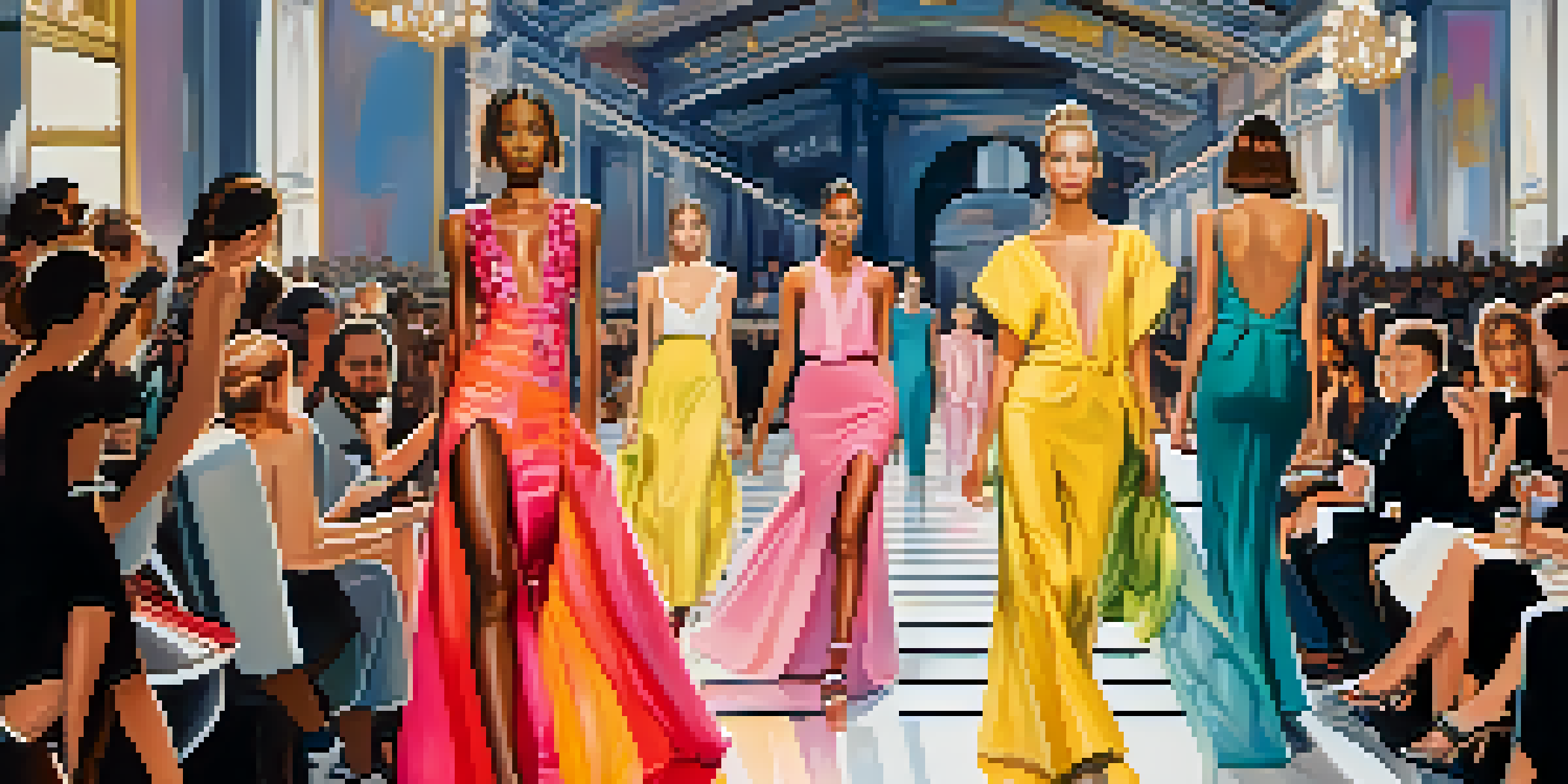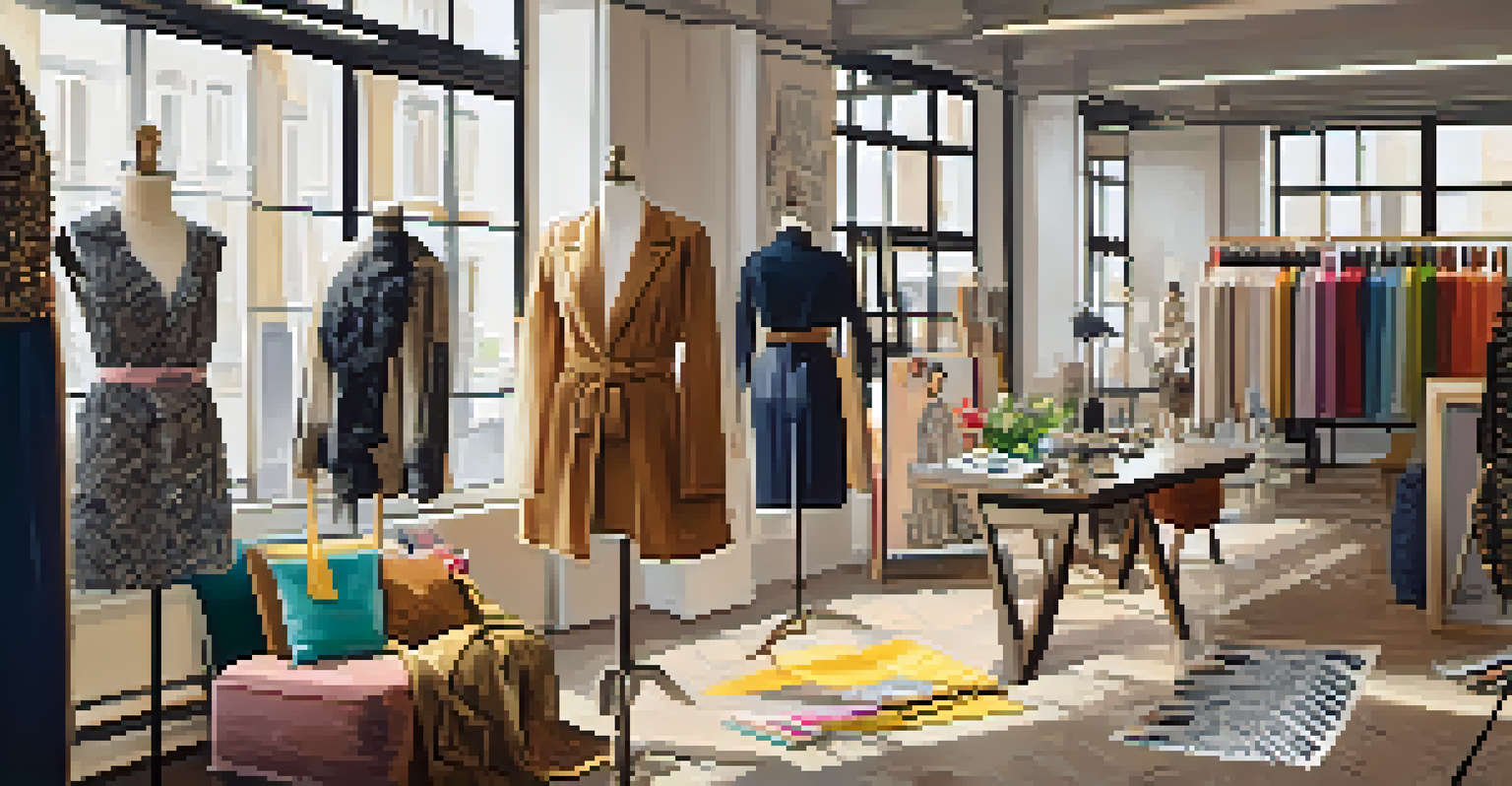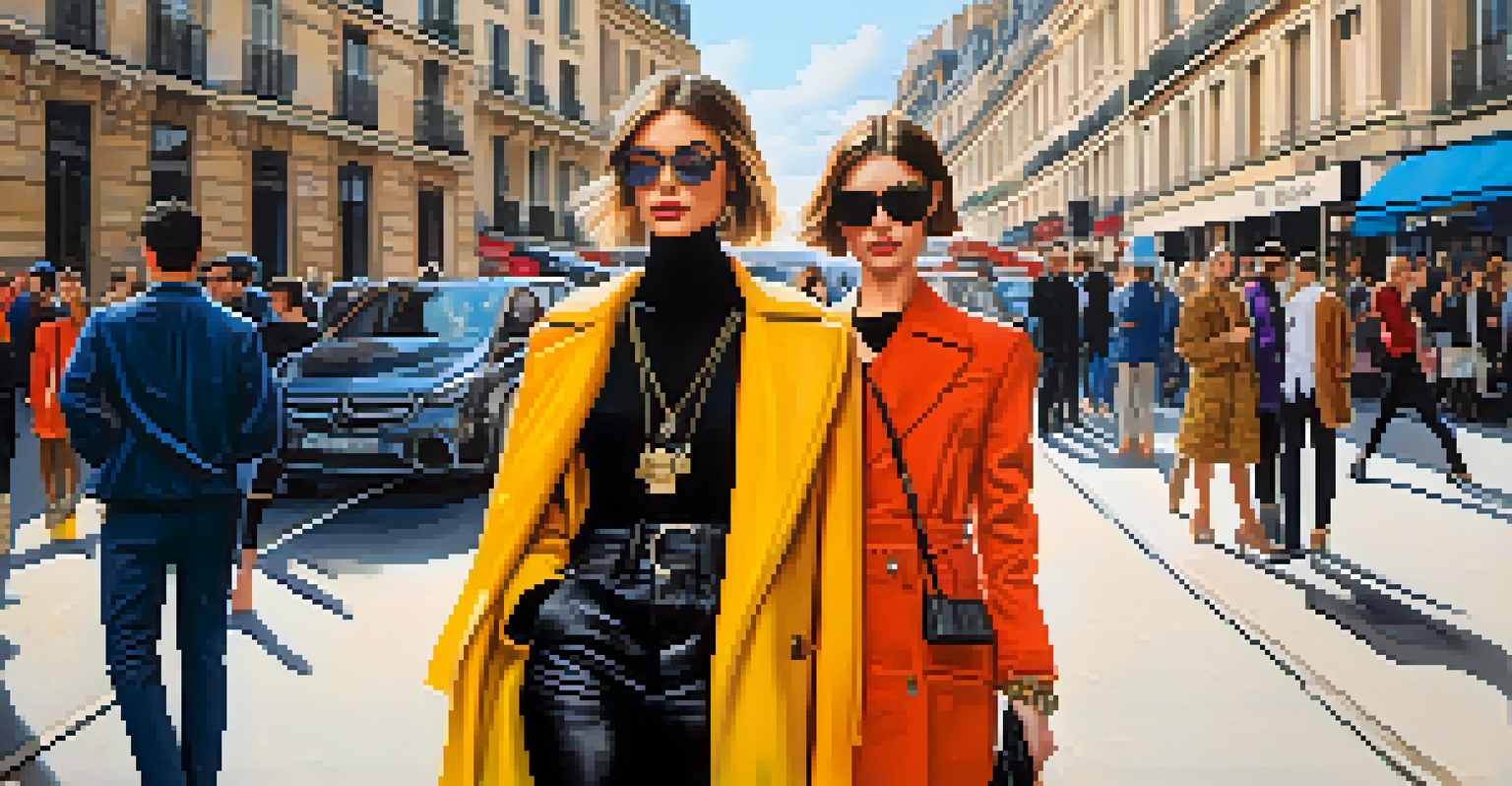The Global Impact of Paris Fashion Week on Regional Trends

Paris Fashion Week: The Epicenter of Global Trends
Paris Fashion Week is undoubtedly one of the most prestigious events in the fashion calendar. Designers, influencers, and fashion enthusiasts flock to the city to witness the latest collections from renowned brands. The buzz generated during this week reverberates across continents, influencing styles, colors, and silhouettes far beyond Paris.
Fashion is the armor to survive the reality of everyday life.
The city serves as a melting pot of creativity, where both established and emerging designers present their visions. This blend of innovation and tradition sets the tone for global fashion, prompting regional designers to adapt and incorporate these trends into their own collections. Thus, Paris Fashion Week not only showcases trends but also inspires a ripple effect that can be felt around the world.
Moreover, with the rise of social media, the reach of these trends has expanded exponentially. A single collection can go viral, influencing the fashion choices of millions in various regions. The immediacy of this exposure means that local markets are often quick to respond to Parisian inspirations, leading to a dynamic interplay between global and local styles.
Regional Adaptations: How Local Markets Respond
When trends emerge from Paris, regional designers often take these cues and adapt them to fit local tastes and cultural contexts. For example, a bold color palette seen on the Paris runway may be toned down for a more conservative market. This adaptability ensures that the essence of Parisian fashion is preserved while making it accessible to different audiences.

In places like Tokyo or Milan, local designers might mix Parisian trends with traditional elements, creating unique fusions that resonate with their clientele. This creative blending not only honors the original inspiration but also celebrates regional identity. It’s a beautiful example of how fashion can be both global and local at the same time.
Global Influence of Paris Fashion Week
Paris Fashion Week serves as a key trendsetter, inspiring regional designers to adapt high-fashion styles to local markets.
Additionally, the accessibility of online shopping allows consumers worldwide to adopt these trends quickly. As regional markets become flooded with new styles inspired by Paris, they begin to develop their own interpretations, leading to a rich tapestry of fashion that reflects both global influence and local flavor.
The Role of Influencers in Shaping Trends
Influencers play a crucial role in translating the high-fashion looks seen at Paris Fashion Week into everyday wear. They curate outfits that make these trends relatable and attainable for their followers. By showcasing how to style runway pieces with local flair, influencers bridge the gap between high fashion and street style.
Fashion is like eating; you shouldn’t stick to the same menu.
Social media platforms like Instagram and TikTok allow these influencers to share their interpretations in real time, sparking conversations about trends and styles. Their engagement often dictates which pieces become popular in different regions. This phenomenon amplifies the influence of Paris Fashion Week, as people look to these figures for guidance on how to incorporate the latest trends into their wardrobes.
Moreover, the collaboration between influencers and brands often leads to limited edition collections that reflect both Parisian aesthetics and regional preferences. This synergy not only boosts sales but also fosters a sense of community among fashion enthusiasts, who are eager to emulate their favorite influencers while staying true to their cultural roots.
Sustainability and Ethical Fashion Trends
In recent years, sustainability has become a significant theme at Paris Fashion Week, influencing regional markets to adopt similar principles. Designers are increasingly showcasing eco-friendly materials and ethical production practices, setting a precedent that resonates globally. This shift encourages regional designers to rethink their own practices, leading to a more sustainable fashion industry.
For instance, many brands now prioritize transparency in their supply chains, allowing consumers to make informed choices. As awareness of environmental issues grows, local markets begin to value sustainability, driving demand for ethically produced fashion. This trend reflects a collective shift towards responsible consumption that stems from the influence of global events like Paris Fashion Week.
Sustainability Shapes Fashion Trends
The emphasis on sustainability at Paris Fashion Week encourages local markets to adopt ethical practices and eco-friendly materials.
Furthermore, fashion weeks around the world are starting to incorporate sustainability into their narratives, creating a unified movement. As Paris leads the charge, regional fashion scenes are increasingly aligning with these values, fostering an environment where eco-conscious choices are celebrated and promoted.
Cultural Exchange: Fashion as a Global Language
Fashion serves as a universal language, facilitating cultural exchange across borders. Paris Fashion Week showcases diverse designers from various backgrounds, highlighting how fashion can tell stories and reflect cultural identities. This global perspective enriches the fashion dialogue, inspiring regional designers to incorporate their own narratives into their work.
For example, a designer from Africa might showcase traditional textiles in a contemporary way during Paris Fashion Week, prompting local markets to explore and celebrate their cultural heritage. This kind of representation fosters appreciation and respect for different cultures, encouraging a more inclusive fashion landscape worldwide.
As these cultural influences blend, they create a vibrant tapestry of styles that resonate with consumers globally. This exchange not only enhances creativity but also fosters understanding, positioning fashion as a powerful tool for dialogue and connection among diverse communities.
Economic Impact: Boosting Local Fashion Industries
The influence of Paris Fashion Week extends beyond aesthetics; it also has significant economic implications for regional fashion industries. As trends emerge and local designers adapt them, there’s often a surge in demand for specific styles, boosting sales and driving growth. This economic ripple effect can invigorate local markets, creating jobs and supporting artisans.
Moreover, as regional fashion weeks gain recognition, they often draw attention from international buyers and investors. The spotlight on local talent can lead to collaborations, sponsorships, and an overall increase in visibility. This not only benefits individual designers but also strengthens the local fashion ecosystem.
Cultural Exchange in Fashion
Fashion acts as a universal language, fostering cultural exchange and inspiring designers to incorporate diverse narratives in their work.
Local fashion events may start to mirror the structure and glamour of Paris Fashion Week, further enhancing their appeal. The resulting economic boost can lead to a flourishing fashion scene that celebrates both global influences and local craftsmanship, fostering a sense of pride within the community.
The Future of Fashion Weeks: Hybrid Models and Innovations
As we look to the future, the format of fashion weeks is evolving in response to changing consumer behaviors and technological advancements. Hybrid models that blend in-person events with virtual experiences are becoming increasingly popular. This approach allows a broader audience to engage with the collections showcased at Paris Fashion Week, enhancing its global reach.
Moreover, advancements in technology, such as augmented reality and livestreaming, are revolutionizing how trends are presented and experienced. This innovation not only democratizes fashion but also encourages regional designers to experiment with new formats, creating unique presentations that resonate with their audiences.

As the industry adapts to these changes, the impact of Paris Fashion Week on regional trends will likely continue to evolve. By embracing a more inclusive and innovative approach, fashion weeks around the world can cultivate a vibrant community that thrives on collaboration and creativity, further enriching the global fashion landscape.